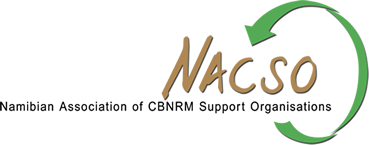
Geoffrey Divai Luhepo is currently the Field Officer of Mashi Conservancy, which borders Bwabwata and Mudumu National Parks and forms part of the Mudumu North Complex Landscape. He started his passion for conservation on 1 July 1991 when he joined IRDNC as a Community Game Guard. Over the years, Geoffrey scaled up through different ranks because of his performance, from Community Game Guard, Senior Community Game Guard to Field officer-his current position.
His roles include community awareness, combating wildlife crime, wildlife data monitoring through the Event Book System and assisting the community with Human-Wildlife Conflict incidences. Today the numbers of wildlife species have tripled, and over the past 29 years of his service, he has seen a positive change in the environment, such as good vegetation and grazing areas for both wildlife and livestock.
Due to the efforts of Community Game Guards in protecting the wildlife resources, the community is able to derive benefits from the sustainable utilization of natural resources, particularly income generated from conservation hunting and photographic tourism. “I have witnessed how Mashi Conservancy generated an income of more than two million Namibian dollars per year. From these benefits, there has been cash benefit distribution to members and capital projects such as water installation, rural electrification, and school blocks. These boosted community ownership over wildlife,” says Geoffrey.
At first, the news about the COVID-19 pandemic did not concern him much, but as time passed, he soon realized of its impact on conservation. His heart trembled when the hunting operators started to re-negotiate their contracts with conservancies to offer reduced payments and to move trophy quotas from guaranteed to optional payment. This would mean that the conservancy will generate very little income and will not be able to cover costs such as game guards’ salaries.
For a man like Geoffrey who is a father of three and the family’s breadwinner, it will be difficult to live without a salary to sustain his family. The loss of income may result in some game guards being demotivated and very little will be done to monitor wildlife which will result in increased poaching and other wildlife crime activities. In the same vain, community members will lose jobs, capital projects, in-kind benefits, and a sense of ownership over wildlife.
In this difficult situation of COVID-19, Geoffrey is appealing to all conservancy game guards in Namibia, to double their efforts of natural resource management to secure their future and ensure that when things are back to normal there will be enough wildlife to justify conservation hunting and tourism for a quick recovery of the lost income to conservancies.
Geoffrey encourages all partners in conservation to join forces to ensure the continuity of wildlife monitoring, by supporting community game guards’ activities through funding resources, in-kind support, and technical input.
“The lockdown and restrictions due to COVID-19 are put for you and me who understands, they do not apply to criminals like poachers, so let us all safeguard our wildlife for the benefit of the current and future generation,” says Geoffrey.

